The Player, The Rapture, The New Age Novels by Michael Tolkin The Player Among the Dead The Player, The Rapture, The New Age Three Screenplays by Michael Tolkin

Grove Press New York Copyright 1995 by The White Mountain Co. Cover design by John Gall Cover photograph by Lorey Sabastian New Line Cinema Corp., courtesy of Photofest All rights reserved. No part of this book may be reproduced in any form or by any electronic or mechanical means, including information storage and retrieval systems, without permission in writing from the publisher, except by a reviewer, who may quote brief passages in a review. Scanning, uploading, and electronic distribution of this book or the facilitation of such without the permission of the publisher is prohibited. Please purchase only authorized electronic editions, and do not participate in or encourage electronic piracy of copyrighted materials. Your support of the authors rights is appreciated.
Any member of educational institutions wishing to photocopy part or all of the work for classroom use, or anthology, should send inquiries to Grove Atlantic, 154 West 14th Street, New York, NY 10011 or Published simultaneously in Canada ISBN 978-0-8021-3392-2 eISBN 978-0-8021-9639-2 Library of Congress Cataloging-in-Publication data is available for this title. Grove Press an imprint of Grove Atlantic 154 West 14th Street New York, NY 10011 Distributed by Publishers Group West groveatlantic.com Its customary and impossible to offer some acknowledgments to those who helped make these movies. If their names are in the credits, I have reason to thank them, and if I shorten the list to four or five people from each film to whom particular thanks are due, another ten will feel justifiably slighted. Each of these movies has its angels. The Rapture began after long, conversations with my brother, Stephen, and without him, I wouldnt have Sharons complaint at the end. The Player is a movie because David Brown wouldnt leave me alone.
Oliver Stone and Arnon Milchan made The New Age possible, but because his name belongs on every list, this book is dedicated to Nick Wechsler. The poem is a capsule where we wrap up our punishable secrets. And as they confine in themselves the only life, the ability to sprout at a more favorable time, to come true in their secret structure to the very minutest details of our thoughts, so they get their specific virtue. We write for this, that the seed come true. from The Autobiography of William Carlos Williams Contents (Original Draft) The scripts in this book conform to the films as released. Some writers, given the chance to publish their scripts, go back to earlier drafts, to give readers a chance to see how the movies changed from their original intentions, but the issue of original intention isnt so simple as reaching to the shelf and taking down the draft with the earliest date, as though the first draft is the purest draft, the true draft.
Early drafts are like one of those childrens flip books divided into thirds; theyre beasts with devil faces, angel wings, and duck feet. There is no such beast as an original version. Is the original draft the one shown to the agent and producer, or the draft that everyone agrees is right to show the money, or is it the draft that raised the money, or rather, is it the draft that got the money interested, or the draft the studio asked for before theyd commit? You might say that the draft that went out for money would be the one to publish, since that version, having no concessions to budget, represents the writers fullest vision; but adjusting a script for the reality of the available money brings the writer into other aspects of reality, focusing him on the essentials of the story, which usually makes a better story. Maybe the draft the writer is happiest with is the best one to call the original draft, but if the writers happiness is a criterion and the writer cringes when scenes he thought were magic die on the screen in the films earliest assemblies, what does it serve to publish them, after theyre cut from the movie? Some scenes seem necessary in the script because we read logically, but when we see a movie we usually make brilliant leaps ahead of the writer, and the scene that says what the audience already knows is not necessarily something that should have been cut from the script before production; scripts need explanations that movies dont. The draft that went to the actors might be great, but then things change in rehearsal when the actors bring themselves to the parts, so maybe the draft that goes to the set is the draft that shows the intentions against which the movie can be properly compared. But the draft that goes to the set is changed by the set, and since the movie was written for the set and the camera, refusing to publish a transcription of the movie because it doesnt live up to the screenplay is blaming the meat of reality for obscuring the ether of an idea, which puts realitywhich puts lifein a state of terrible theological disrepute.
Also, involving the audience in the steps of the films progress makes detached experts of everyone, which is another disaster. A scene comes along in a film, and with too much information were suddenly thinking about the history of the scene, and the film is destroyed until we come back to it. Those directors who participate in the critical dissection of their films by adding outtakes and cut scenes to their laser discs hurt themselves and hurt their movies. We did this with The Player; one of the audio tracks has our commentary on each scene. Its funny, but its easy. The work then becomes something that the audience is invited to view with superiority, a puzzle to be deciphered, when the work should stand in opposition to its own analysis and, in turn, decipher the viewer.
The best books, the best movies read us, watch us, and as we come to love and understand the work, or even run from it, we discover ourselves. When people talk about interactivity all I can think of is the Roman crowd giving thumbs up or down. The audience does not create, and the propaganda surrounding the supposed interactive future is filled with lies about audience control. Its all pinball; its just that with the computer youre inside the machine, so you dont see the outside of the frame. But this is really a cover for the reason I glided over at the beginning: I know that every script I wrote had something I shouldnt have given up, and people read closely, and I dont want to be asked why some jewels were tossed aside. If I say forthrightly, Well, I cut that scene because I was stupid, Ill be hanging myself.
Instead of telling the truththat I may have been wrongI pretend to an intellectual astringency and say that one has to accept ones story, the inspiration as it comes, and the way it finds expression, and finally, the way the world receives it. The movies changed as they went from first notes and outline through the final cut because they did, because for better or worse those of us who made the films were chasing something, and the obsessions denied for fear of the paths they lead to, which sometimes land you on the far side of town from the bank, are better pursued than abandoned. The blocked imperative kills. I hope that sounds reasonably philosophical. Its the kind of thought thats given in routine defense of art, and it may also be the great defense of wickedness, if the artist as blind hero is the favored model. The truth is more complicated.
Sometimes a good idea is lost for bad reasons. One sequence we shot for The Rapture was ruined by a scratched negative. The scene that replaced it may be better, but then I have to say that, or thank providence, because I think its better to look back on a completed film as what was intended, especially when something comes up that doesnt work. There is no one to blame but yourself. Another reason not to publish early drafts is that some of those lost scenes might show up somewhere else, in other movies. I can just imagine going to a screening of a film with one of those scenes and finding the guys who subscribe to Premiere all whispering to their dates, As it happens, that scene was originally written for The Player .

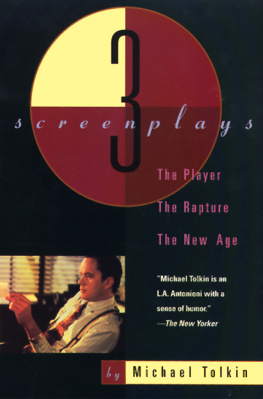

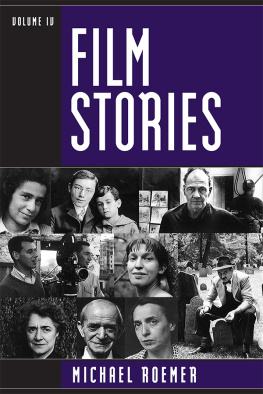
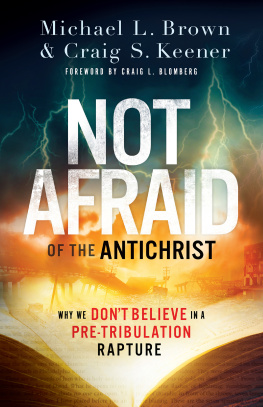
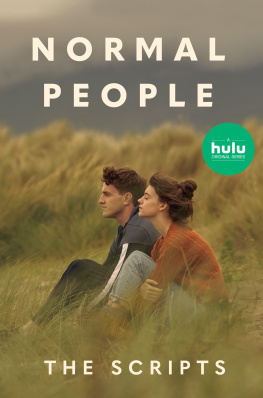
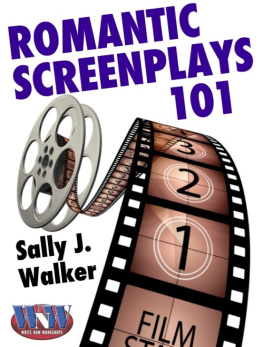
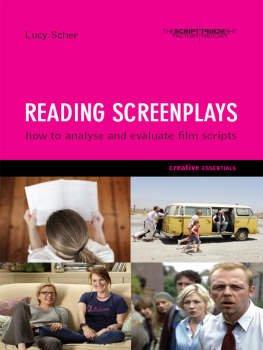
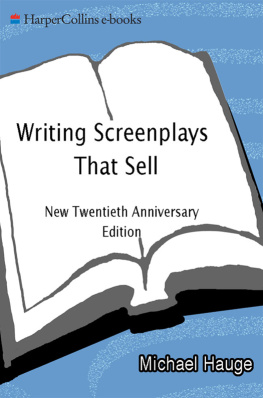
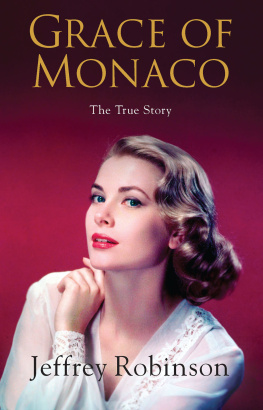

 Grove Press New York Copyright 1995 by The White Mountain Co. Cover design by John Gall Cover photograph by Lorey Sabastian New Line Cinema Corp., courtesy of Photofest All rights reserved. No part of this book may be reproduced in any form or by any electronic or mechanical means, including information storage and retrieval systems, without permission in writing from the publisher, except by a reviewer, who may quote brief passages in a review. Scanning, uploading, and electronic distribution of this book or the facilitation of such without the permission of the publisher is prohibited. Please purchase only authorized electronic editions, and do not participate in or encourage electronic piracy of copyrighted materials. Your support of the authors rights is appreciated.
Grove Press New York Copyright 1995 by The White Mountain Co. Cover design by John Gall Cover photograph by Lorey Sabastian New Line Cinema Corp., courtesy of Photofest All rights reserved. No part of this book may be reproduced in any form or by any electronic or mechanical means, including information storage and retrieval systems, without permission in writing from the publisher, except by a reviewer, who may quote brief passages in a review. Scanning, uploading, and electronic distribution of this book or the facilitation of such without the permission of the publisher is prohibited. Please purchase only authorized electronic editions, and do not participate in or encourage electronic piracy of copyrighted materials. Your support of the authors rights is appreciated.